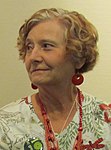
Back Elecciones provinciales de Columbia Británica de 2013 Spanish Élections générales britanno-colombiennes de 2013 French
| |||||||||||||||||||||||||||||||||||||||||||||||||||||
85 seats in the Legislative Assembly of British Columbia 43 seats needed for a majority | |||||||||||||||||||||||||||||||||||||||||||||||||||||
|---|---|---|---|---|---|---|---|---|---|---|---|---|---|---|---|---|---|---|---|---|---|---|---|---|---|---|---|---|---|---|---|---|---|---|---|---|---|---|---|---|---|---|---|---|---|---|---|---|---|---|---|---|---|
| Opinion polls | |||||||||||||||||||||||||||||||||||||||||||||||||||||
| Turnout | 55.32%[1] | ||||||||||||||||||||||||||||||||||||||||||||||||||||
| |||||||||||||||||||||||||||||||||||||||||||||||||||||
 Popular vote by riding. As this is an FPTP election, seat totals are not determined by popular vote, but instead via results by each riding. Click the map for more details. | |||||||||||||||||||||||||||||||||||||||||||||||||||||
| |||||||||||||||||||||||||||||||||||||||||||||||||||||
The 2013 British Columbia general election took place on May 14, 2013, to elect the 85 members of the 40th Parliament of British Columbia to the Legislative Assembly in the Canadian province of British Columbia. The British Columbia Liberal Party (BC Liberals) formed the government during the 39th Parliament prior to this general election, initially under the leadership of Premier Gordon Campbell then after his resignation, Christy Clark. The British Columbia New Democratic Party (BC NDP) under the leadership of Carole James, and then Adrian Dix, formed the Official Opposition. The BC Green Party under the leadership of Jane Sterk and the BC Conservative Party under John Cummins were also included in polling, although neither party had representation at the end of the 39th Parliament.
The Liberal Party won its fourth straight majority; Clark was defeated in her riding, but she was re-elected to the legislature in a subsequent by-election in Westside-Kelowna on July 10, 2013,[2] after Liberal MLA Ben Stewart stepped down on her behalf.[3] The NDP remained the official opposition, losing two seats, and the Green Party won its first seat.
Despite their victory, the Liberals had been consistently several points behind the opposition New Democrats in every public opinion poll throughout the campaign.[4] Even poll results released on the last day of the campaign suggested that the New Democrats had an eight to nine percentage point margin over the Liberals.[5] Only one pollster, Forum Research, had released a poll which suggested that the Liberals were close enough that a victory was even possible for them, although even that poll had the New Democrats ahead by two percentage points.[5] The Liberals' upset victory led to significant media debate about the quality of opinion polling in Canadian elections.
- ^ "B.C. Voter Participation: 1983 to 2013" (PDF). Elections BC. Archived from the original (PDF) on March 28, 2019. Retrieved May 11, 2017.
- ^ "B.C.'s Premier Christy Clark wins byelection, returns to legislature" Archived January 6, 2016, at the Wayback Machine. Toronto Star, July 10, 2013.
- ^ "Ben Stewart steps aside in Kelowna for B.C. Premier Christy Clark" Archived January 11, 2019, at the Wayback Machine. Vancouver Sun, June 5, 2013.
- ^ "Why were polls so wrong about the B.C. election?" Archived May 31, 2013, at the Wayback Machine. CBC News, May 15, 2013.
- ^ a b "Why were the polls completely wrong about the B.C. election?" Archived March 3, 2017, at the Wayback Machine. The Globe and Mail, May 15, 2013.


